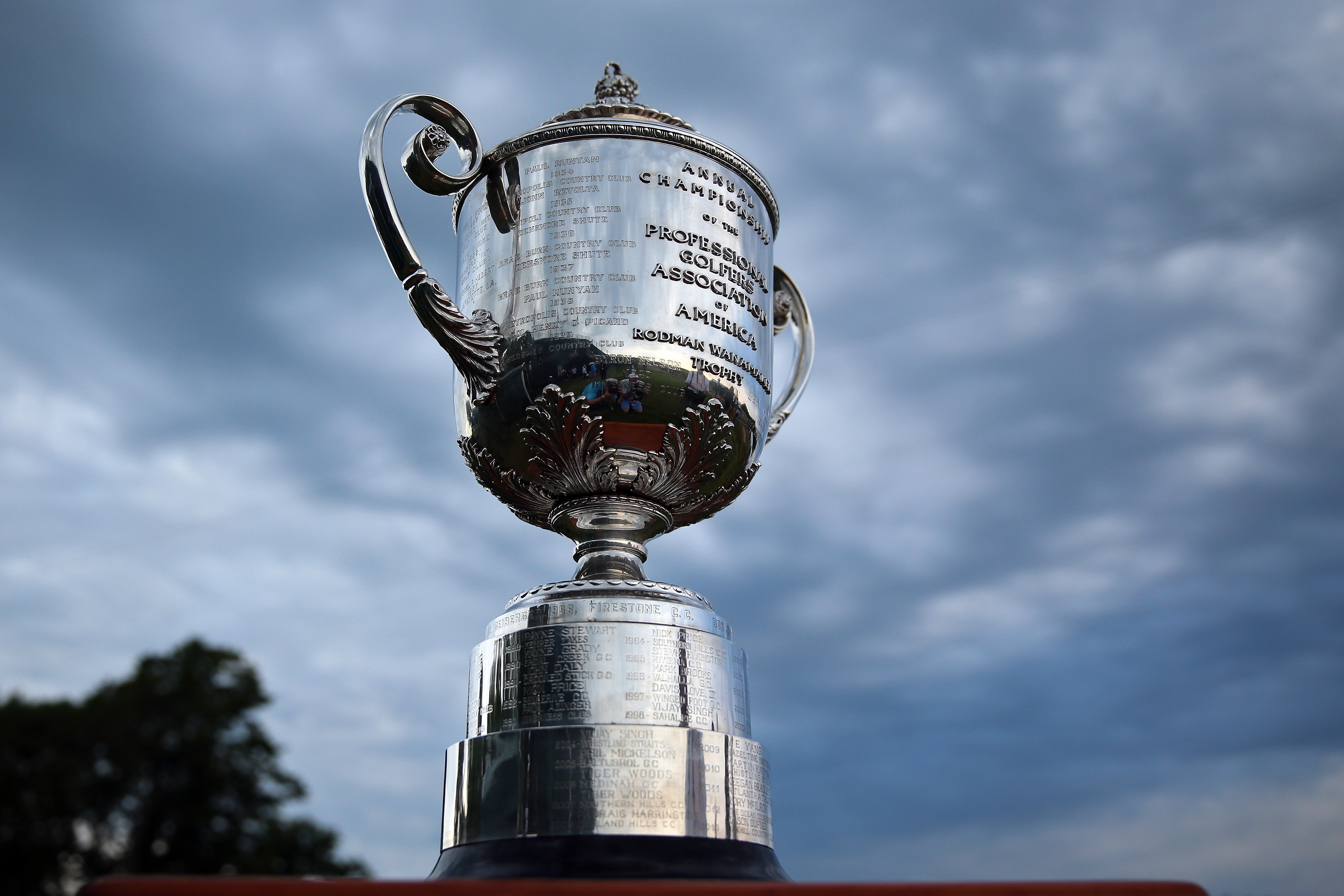CHARLOTTE, N.C. -- Some of the world's top ranked golfers will take the course for the 2017 PGA Championship in hopes of taking the title.
While the title comes with the ultimate bragging rights, it really doesn't seem right without being able to hoist up a brilliant and shining prize. Cue, the Wanamaker Trophy.
Weighing in at 27 lbs. and standing 28" high, the massive trophy is a thing of beauty. But the trophy also comes with history rooted deeply within the golf world.
On January 17, 1916, New York Department store magnate Rodman Wanamaker sponsored a lunch for prominent professional and amateur golfers that evolved into the founding of the Professional Golfers' Association (PGA) of America.
"Had Wanamaker not demonstrated his interest, it is unlikely that the Professional Golfers' Association of America would have begun in earnest," the World Golf Hall of Fame said.
According to the PGA, Wanamaker offered to provide the new association with cash prizes and a trophy for the inaugural PGA Championship. He also said the trophy should be similar to the News of the World Award which was awarded to the winner of Great Britain's PGA Championship.
"Wanamaker's generosity resulted in $2,500 for the first PGA Championship, conducted at match play at Siwanoy Country Club in Bronxville, New York on October 9 - 14, 1916," the PGA said.
Both a silver cup and gold medal were also presented to the winner, silver medal for the runner-up, and bronze medals for the winners of the qualifying rounds.
The Wanamaker Trophy continues to serve as the perpetual honor prize for the PGA Champion, despite taking a vacation of its own for two years.
In 1928, Leo Diegel shocked the golf world by breaking Walter Hagen's four-year winning streak. But the bigger surprise was the disappearance of the Wanamaker Trophy.
Hagen told PGA officials he had entrusted the trophy to a taxi driver to take it to his hotel. When it never arrived, Hagen had deemed it irrevocably lost, the PGA said.
However, in 1930 the trophy was accidentally found by a porter in Detroit as he cleaned the cellar of L.A. Young & Company, the firm that manufactured clubs with Hagen's name. It was safe in an unmarked case.


